Just past Batesville in the cute little community of Pfeiffer, Tyler and Monica Griffin are slowly building the farm they’ve dreamed about since they were younger. Cave Creek Farms is a registered Shorthorn cattle and blackface sheep farm, specializing in providing animals to FFA and 4-H students. The Griffins also have two sons, Barrett and Owen, who are getting the opportunity to grow up on this picturesque farm in the foothills of the Ozarks. We recently got to tour their operation and ask the Griffins all about their farm.
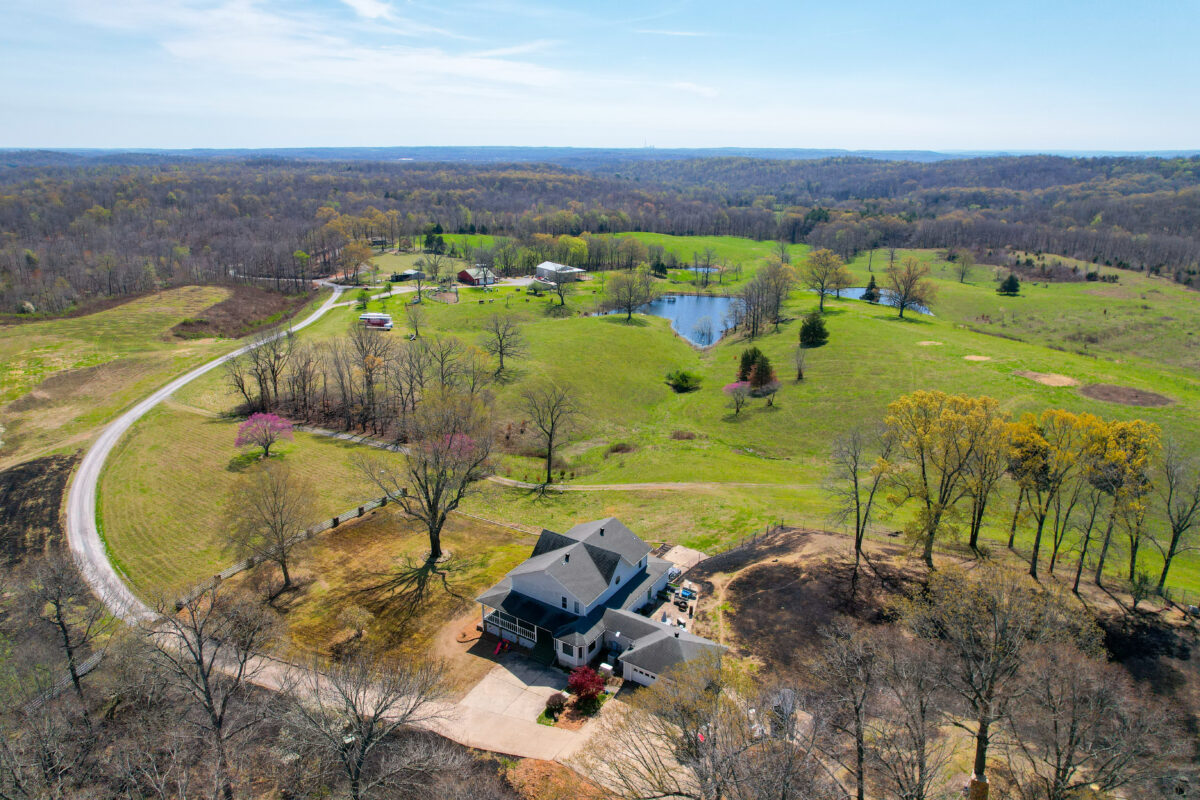
Q – How did Cave Creek Farms come to be?
Monica – Neither one of us were ever inheriting a farm. It just wasn’t in the cards for our families. And so, we had talked and dreamed about having our own ranch, but we knew it wasn’t going to be an overnight thing.
I found myself every day in the classroom as an ag teacher, teaching kids and loving talking about the industry, but I just always felt a little bit of a disconnect because I didn’t have those personal stories from a farm of my own.
Tyler – I knew we were going to have to figure out how to buy some land. It’s daunting to think about land prices. So, my plan was to go to medical school so that I could afford to purchase the property that I wanted. And that’s what I did, I went to UAMS and became an emergency medicine doctor and am now practicing here in Batesville.
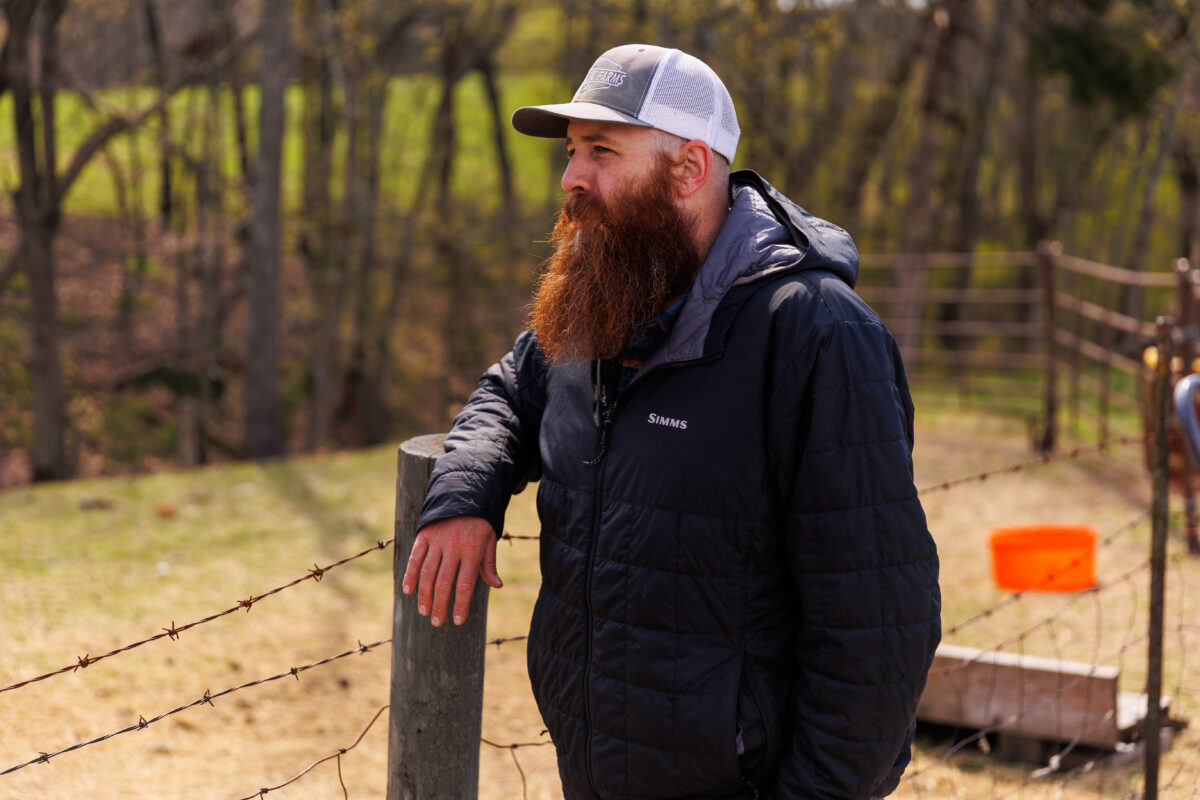
Exactly what we were looking for happened to be here in Batesville. We really liked the area. We’d gotten drawn here because the hospital here is great. And so, we were able to buy this farm about 10 years after we got married.
Monica – We just have had a blast building this dream together and making it a reality. When I stepped out of the classroom it was a hard decision to make, but being able to be on the production side of things, it just made everything that I was teaching those kids seem so much more relevant. I can truly say it’s the best industry to find a career in. And it’s nice when both of those get to be the same thing that you put your effort and your energy into.
We kind of shot high and said, let’s go find the dream. It just happened to be that the family that resided on this farm was retiring from a cattle operation, and they wanted to sell it to somebody who wanted it to be a cattle operation.
They wanted to preserve the land because they knew it was difficult to find people who wanted to live a life that can be as tough as raising livestock. It’s where they loved raising their kids too and so when we told them that we had two kids and we wanted to raise them on a farm, it was just kind of a golden opportunity that we could continue their legacy and their dream here on the farm with our own family.
Q – What made you both decide you wanted to be in agriculture?
Tyler – For me, it starts from when I was a kid. I got into showing livestock. My granddad had been a cattle rancher, but my dad didn’t have much interest in it. All the cattle got sold off and Dad started tearing down all the fences on the farm. In the seventh grade, I had a couple of cousins showing cattle, I went to see them show and liked it a lot. So, I started getting some cattle and putting fences back up on the farm and, you know, showed throughout high school and some early college, and just realized that this was always something I wanted to do.
Monica – I didn’t grow up on a farm. There were farms in my area, so I was always involved in helping out friends, family, and community members on their farms, just to get a little taste of it. One of my dearest friends Cynthia said, ‘You need to come and join an FFA class with me back in high school.’ And I was like, ‘I don’t do any of that farming stuff.’
I had just gotten out of sports, and I had some space on my schedule, so I took the class and my agriculture advisors, Mr. Woodrow and Mr. White, really invested in me. I got involved in the leadership side of FFA and it helped me to see the different facets of agriculture. And I think that’s when I really discovered that love for livestock and horticulture.
I thought I was going to go be a veterinarian and I was going to play with puppies and take care of animals. But I found out quickly that I enjoyed teaching other people about what I was learning about in my agricultural classes as much as I wanted to help animals. That led me to my degree in agriculture education and reinforced my desire to have my own farm.
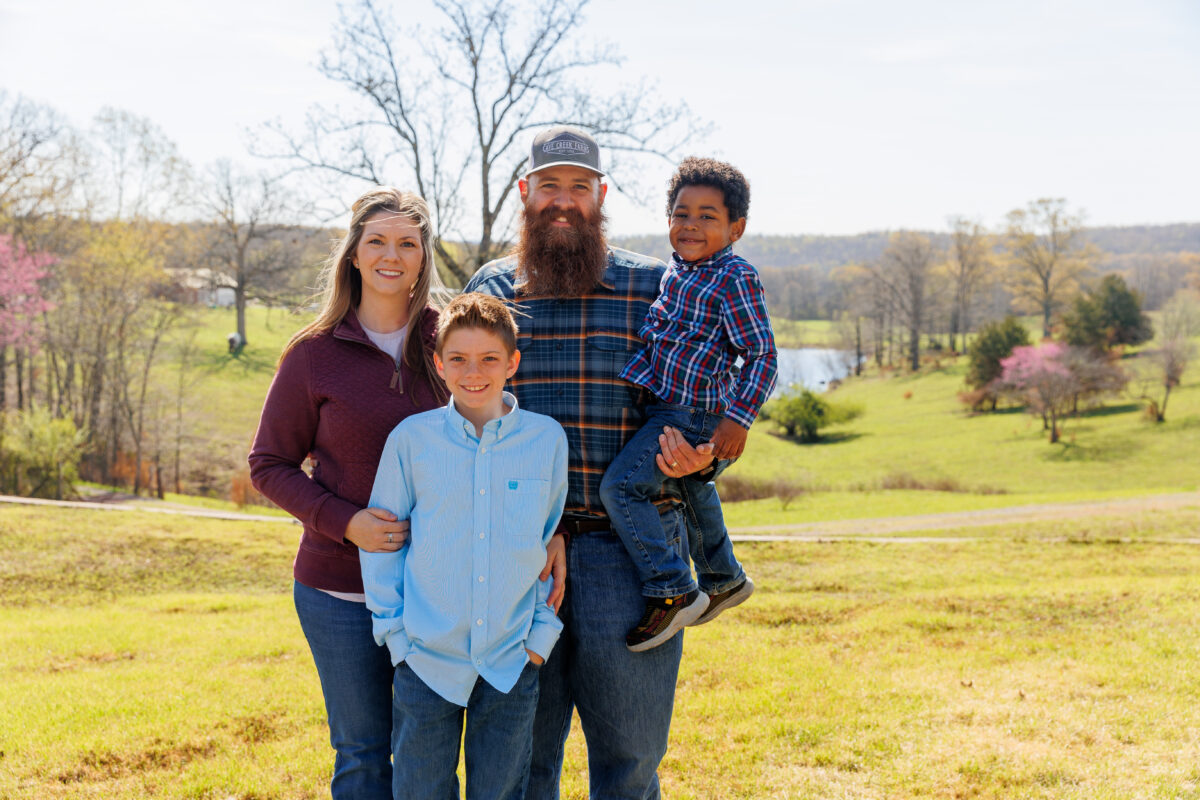
Q – Let’s talk about your operation now. What do you raise here?
Monica – We raise Shorthorn cattle and blackface cross sheep. We are definitely a startup though. We’re first generation, I would call it, just because we came with nothing. We currently have 18 head of registered Shorthorns with one on the way. So hopefully 19 before too long. With our small numbers, it seems tiny when you talk to other cattle producers, but we are growing at a sustainable rate for us.
We’re building the dream the way we see it and we know that our finances are limited and so we are particular about what genetics we bring onto the farm so we can produce the best of the breed.
We’ve also got right at 22 ewes in our flock of sheep that we’re raising, and they’ve got lambs on the ground right now. So that’s always exciting too!
Q – Having a smaller herd, what is the primary goal of your farm?
Monica – Our main purpose with our Shorthorns and our sheep is that we want to get FFA and 4-H kids involved in the livestock industry. Having good quality projects at a good price point for livestock exhibitors is kind of our main goal.
We want to make sure the experiences that we had, and the experiences we’ve seen kids having, that they can continue doing that and being able to have local breeders that they’re able to visit and communicate with. We really want to be able to assist them in their projects in any way we can.
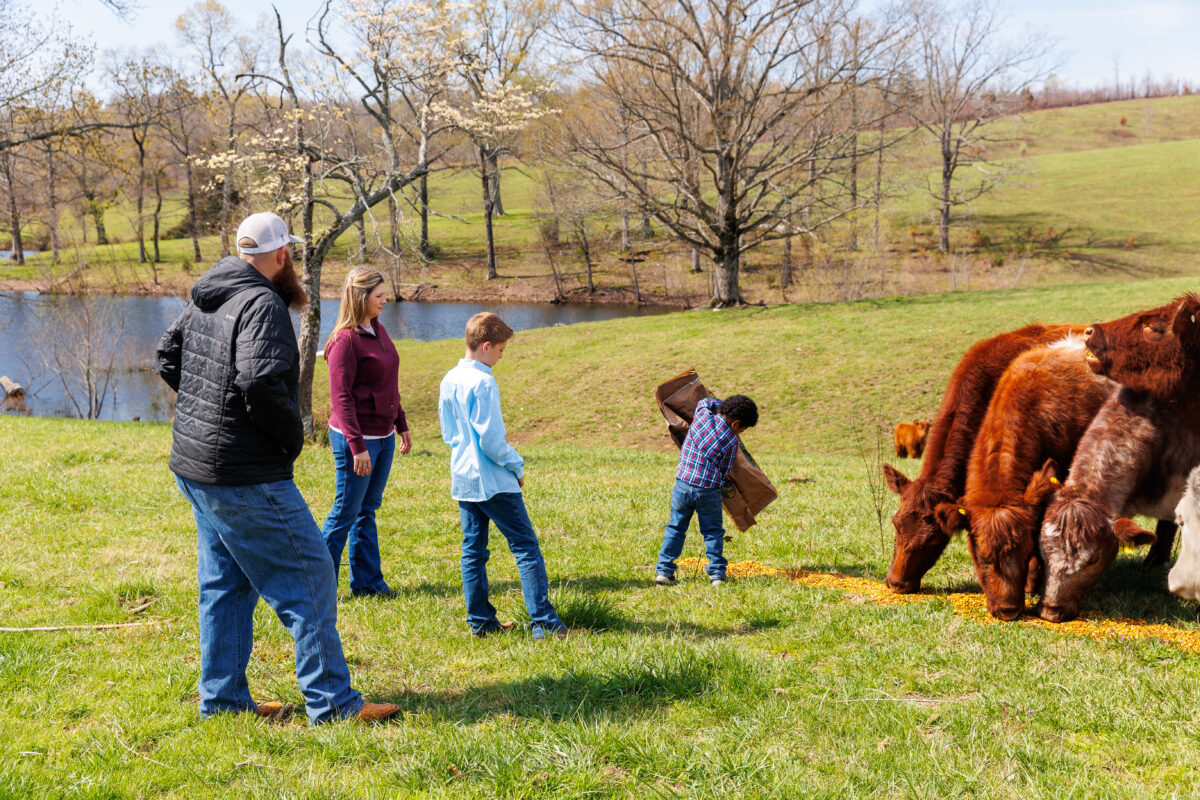
Tyler – Obviously, like Monica said, trying to get projects in the hands of kids is important.
Whenever I was growing up, I was blessed to have parents who saw the value in me showing livestock. And so we drove to Oklahoma and Nebraska and we bought livestock projects and most of my cattle came out of Texas back then. And, you know, they put a lot of time and effort and money into making sure I was involved in that.
But I understand that not everybody can do that. Arkansas now has many more people raising quality livestock. But whenever I was doing it there weren’t that many places locally that you could go and find a quality show calf if you wanted to compete on a national stage. So that’s what we are looking to provide.
Q – You also are raising two boys of your own here on the farm. Tell us about them?
Monica – They’re a hoot and a half as all little boys should be. We’ve got Barrett, who’s 9, and Owen, who’s 4. They can bat eyelashes and about win the world. They are such a joy. We’ve got to make sure that we raise them to be the strong Christian men they’re supposed to be, and there is no better place than the farm to do that. We get to raise them where they learn work ethic and they can see the outcome of their hard work.
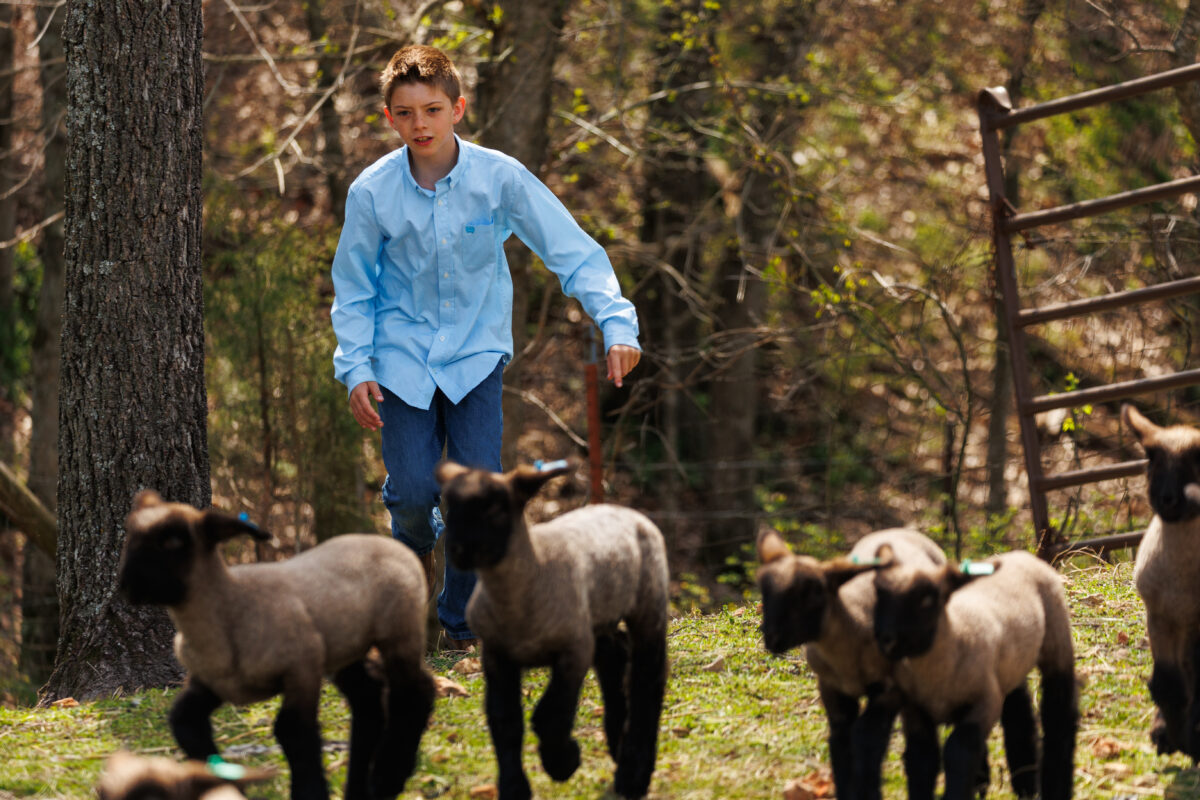
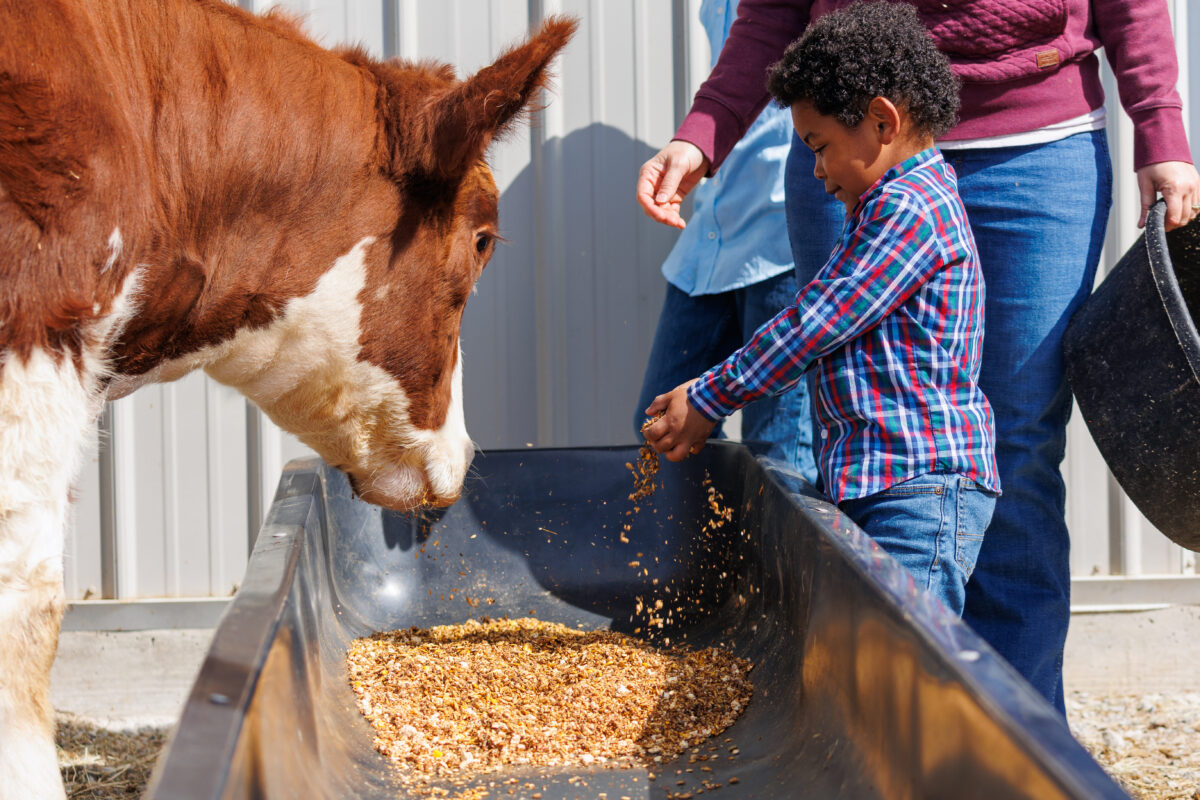
Q – What is the future of the farm? What do you want the farm to look like in about 10 years?
Monica – I would love to see that we have just more high-quality females that we get to raise calves out of. More bulls that we can have in the rotation. We do utilize artificial insemination to diversify our herd, but I would love to be able to look at the female and look at the bulls in the paddock and go, you know, this is the one that I need to pull to make the best pairing.
I always want to work with other breeders. I know I’m not going to be the be-all, end-all in 10 years. Some families have hundreds of years on me when it comes to experience but knowing that we’ve put such diligent work in our selection and that we’ve been particular and able to see that we can have our genetic pairings with what we have here.
Tyler – In 10 years, I’d also like to see us having a cattle and sheep sale on the farm. I’d like to see our projects in kids’ hands, and they see some success in the ring.
We have been trying to bring the pieces together to build what we want, it is taking some time to get there, but in the past five years, having bought the farm and all the livestock, and built the barn. So, if we can accomplish all of that in five years, it’s exciting to think about where another 10 years can bring us.
If you want to learn more about their farm, be sure and follow their Facebook page! The Griffins also own and operate Poke Bayou Outfitters in downtown Batesville, where they have the unique opportunity to advocate for agriculture to a different section of the public. While they don’t sell ag products, it’s a great place to stop in for all your outdoor recreational needs.
Interested in the sights and sounds of Cave Creek Farms? Check out our video profile on them!
Bonus content. While at the farm Owen showed an interest in learning some basics of photography and I wanted to share a few of the awesome photos he took!
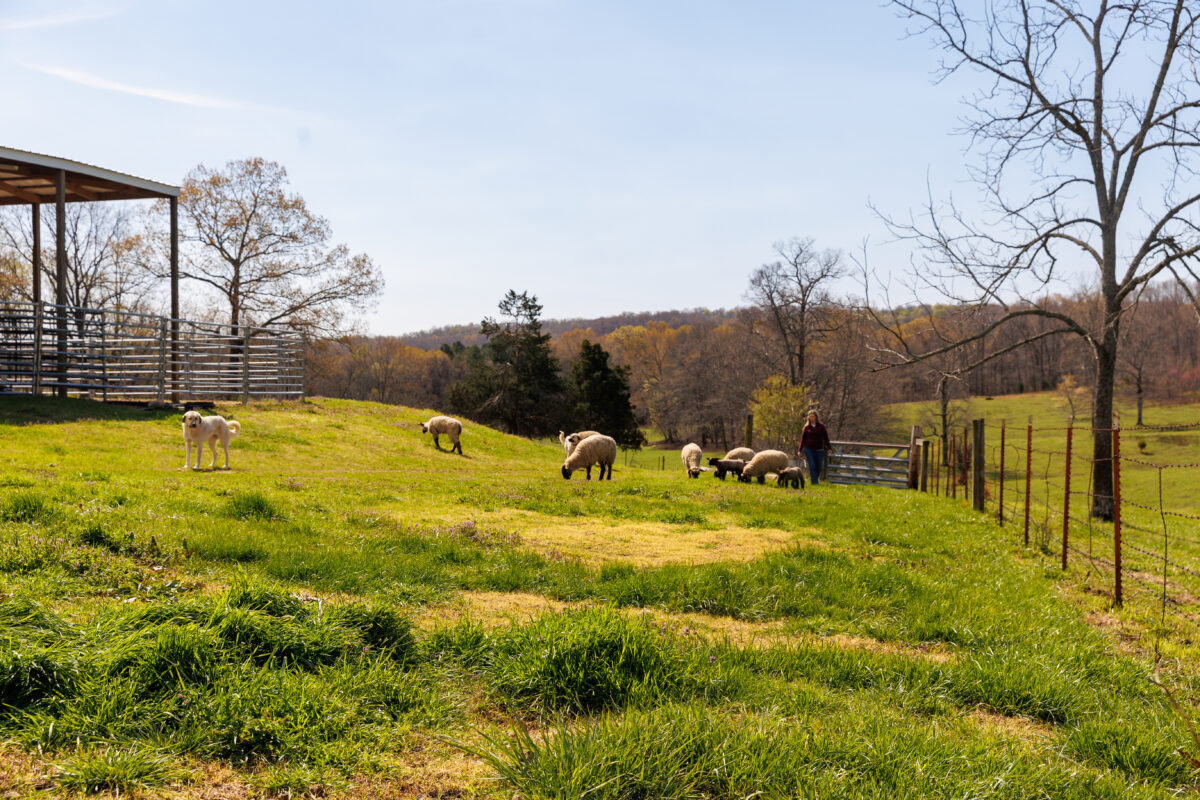
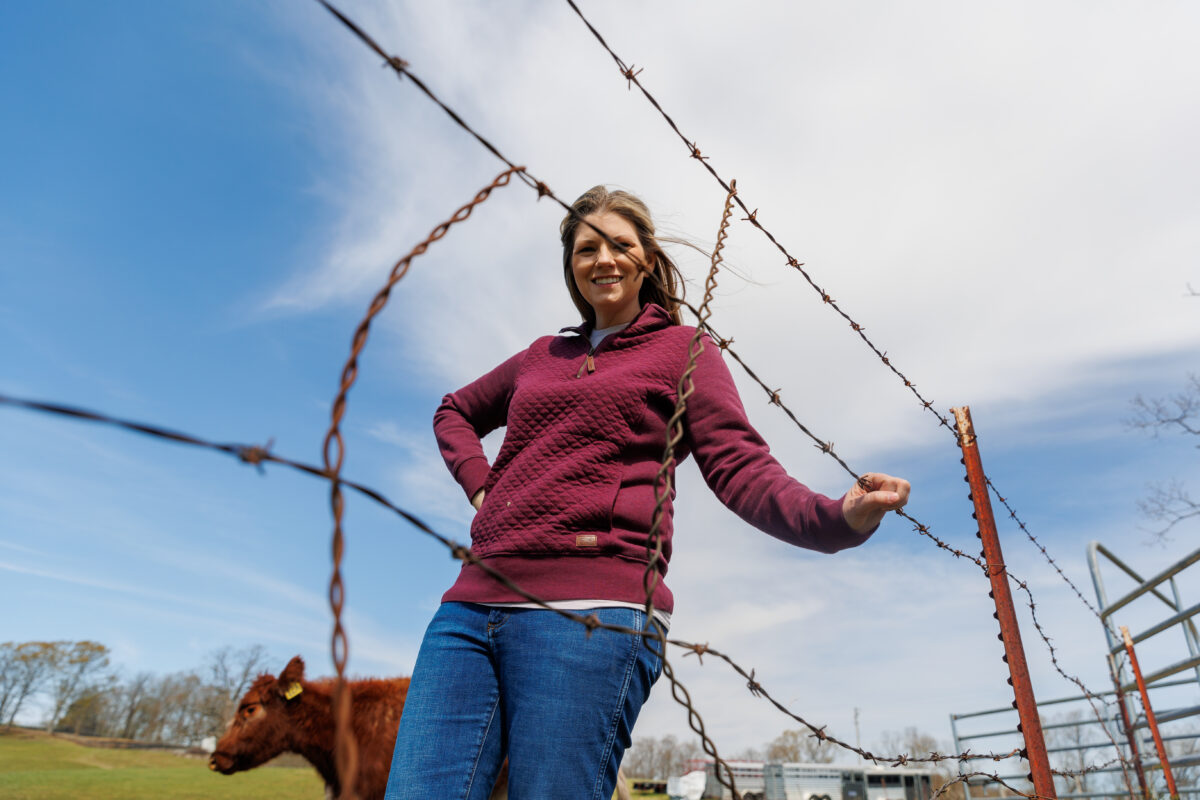
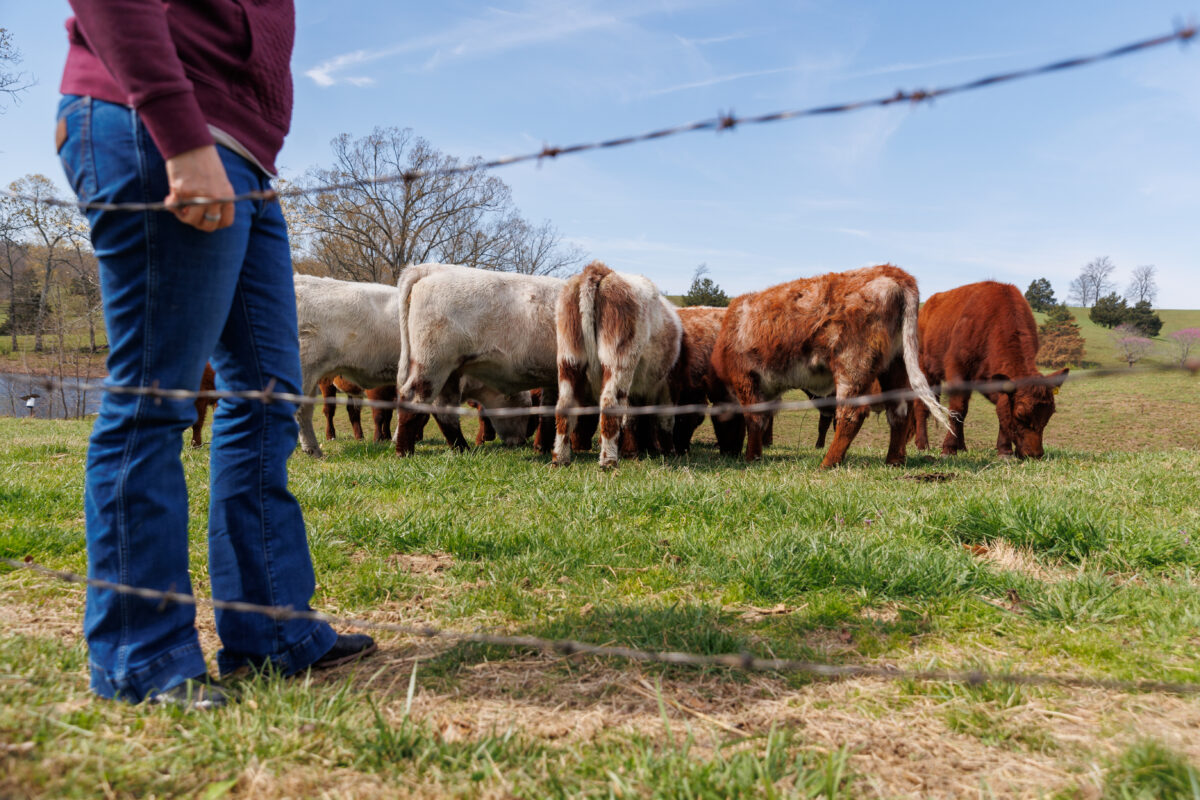
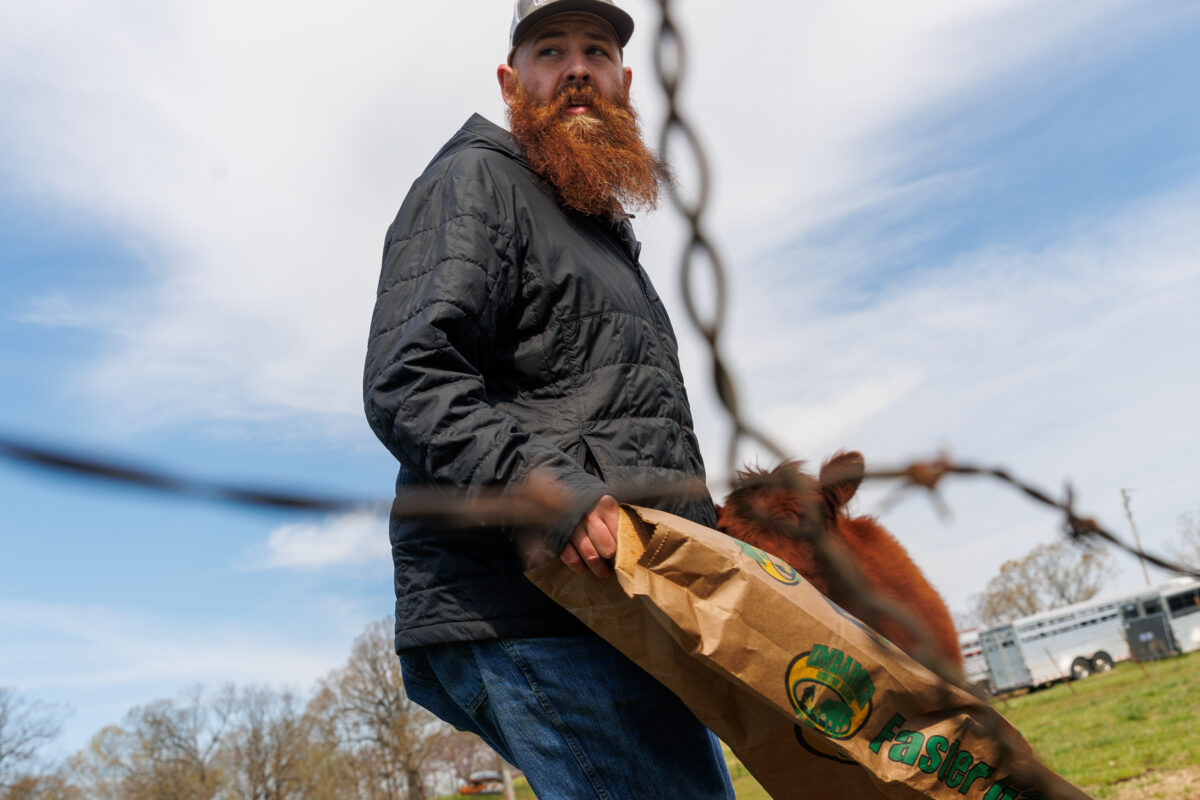
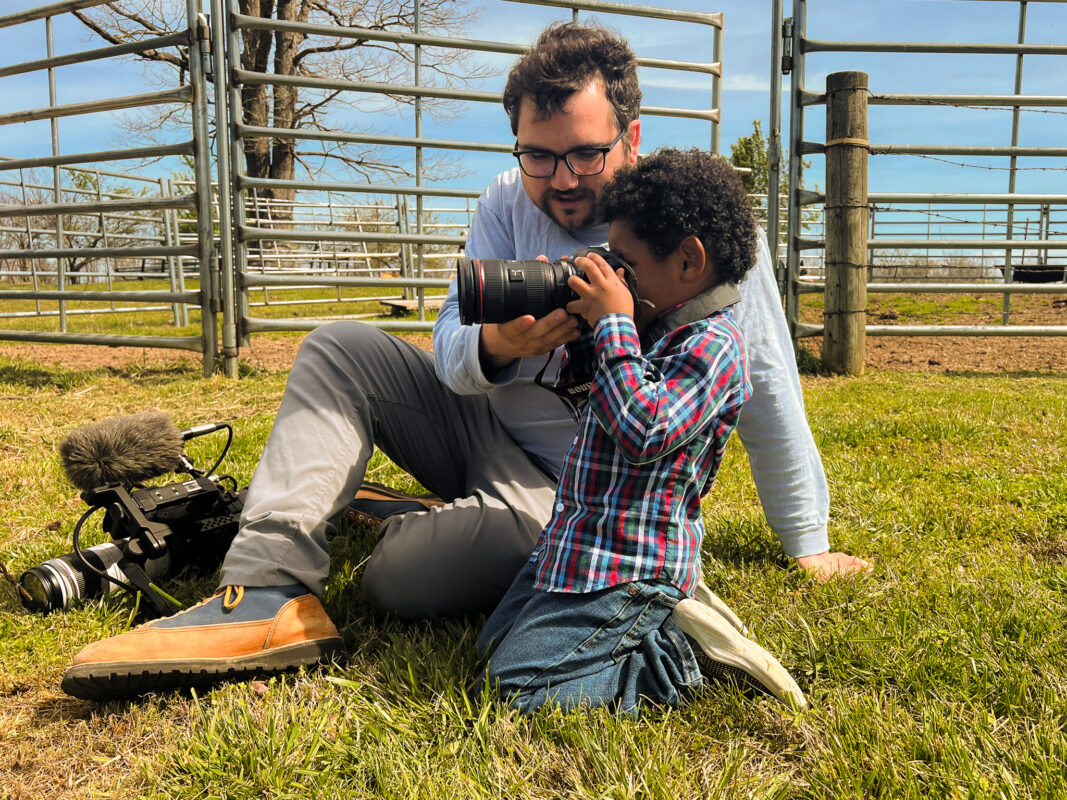
I guess the eyelash batting worked on me.